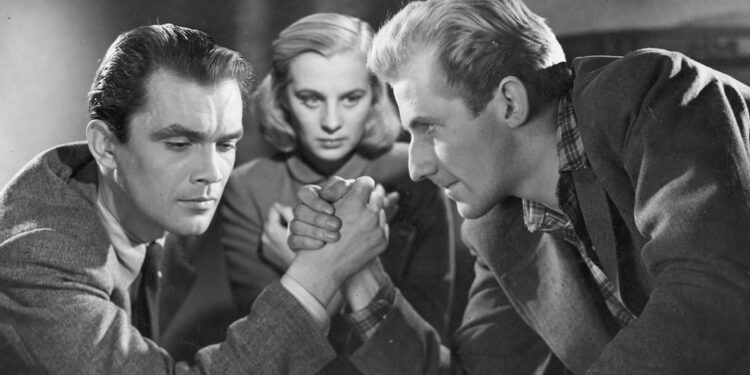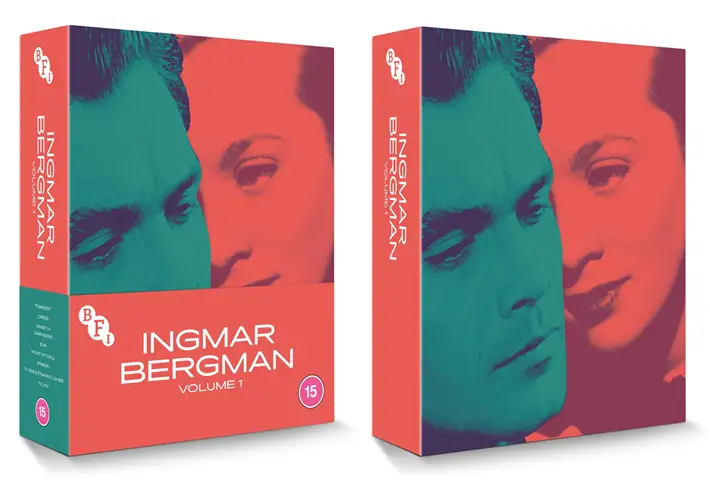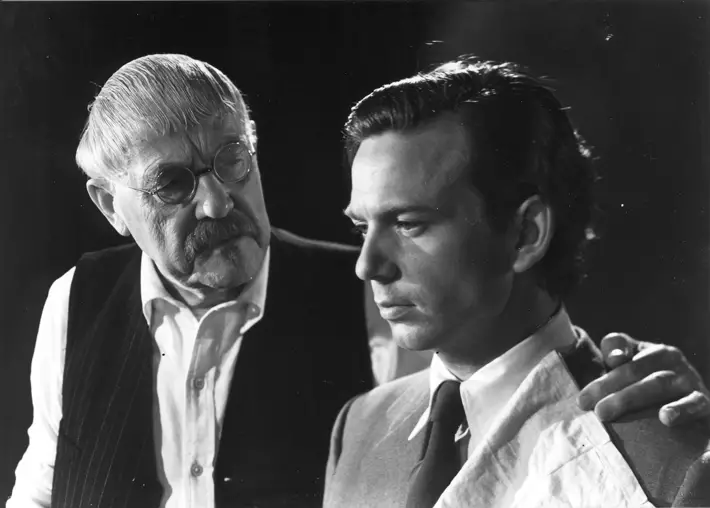Imgmar Bergman Volume 1 – Review

By Sarah Morgan
He’s one of the most influential film-makers of the 20th century, but how many of Ingmar Bergman’s films have you actually seen?
His works aren’t always easy viewing and so rarely pop up on TV. So, if you’re a serious cineaste, chances are you’ve only caught some of his most famous movies, such as Wild Strawberries or The Seventh Seal.
There’s a chance to change all that courtesy of the BFI’s proposed four-volume blu-ray releases of 32 of Bergman’s works. Volume 2 is set to hit shelves in the autumn, with volumes 3 and 4 heading our way in 2022.
“Ill-fated love affair”
But before then, Volume 1 whets the appetite for more via eight early offerings across five discs; all have had 2K restorations.
Chronologically, the first title is 1944’s Torment, which tells the tale of an ill-fated love affair between a student and a shop worker. It was penned by Bergman, but directed by Alf Sjoberg, although Bergman did film a reshoot when Sjoberg proved unavailable to do so.
Crisis (1946) was his true directorial debut. Based on a radio play, it focuses on a teenager caught in a love triangle between her birth mother (she was raised by a foster parent in a small town) and her erstwhile younger lover.
A blind man’s experiences are at the centre of Music in Darkness and Port of Call charts the relationship between a former sailor and a young woman from a difficult background, while Eva, again only written by Bergman, features the story of Bo, a man haunted by death; all three films were released in 1948.
“Much to say”
Prison (1949) is a film-within-a-film, in which a director tries to figure out a way to make his latest magnum opus. Three Strange Loves, which was released the same year, reveals how past mistakes and heartbreak can have a long-reaching impact on those involved.
Last, but by no means least, a violinist’s often troubled marriage to a fellow player is examined in To Joy, from 1950.
What strikes viewers is how sophisticated all eight films are, particularly in comparison with movies being made in Britain and Hollywood at the time – these are films for grown-ups with much to say about the human condition, rather than entertainments for the masses that might happen to contain some sort of social comment.
It’s not advisable to watch them all back-to-back, however – due to them containing many of the same actors and themes, it’s easy to get confused or to feel they’re getting a bit ‘samey’. But watched separately and on their own terms, there is much to admire.
CRISIS (1946): Directed by Ingmar Bergman, Screenplay by Ingmar Bergman
MUSIC IN DARKNESS (1948): Directed by Ingmar Bergman, Screenplay by Dagmar Edqvist
EVA (1948): Directed by Gustaf Molander, Screenplay by Ingmar Bergman
PORT OF CALL (1948): Directed by Ingmar Bergman, Screenplay by Ingmar Bergman
PRISON (1949): Directed by Ingmar Bergman, Screenplay by Ingmar Bergman
THIRST (1949): Directed by Ingmar Bergman, Screenplay by Herbert Grevenius
TO JOY* (1950): Directed by Ingmar Bergman, Screenplay by Ingmar Bergman
Special features:
· The Guardian Interview: Ingmar Bergman (1982, 62 mins, audio only): Ingmar Bergman pays tribute to Alf Sjöberg, the director of Torment, discussing his influence and impact on his own career
· Ingmar Bergman: First Cries, Early Whispers (2021, 20 mins): a new video essay by writer, filmmaker and film journalist Leigh Singer
· 100-page perfect-bound book featuring new essays by Jan Holmberg (CEO of the Ingmar Bergman Foundation), Philip Kemp, Geoff Andrew, Jessica Kiang, Alexandra Heller-Nicholas, Kat Ellinger and Laura Hubner
Ingmar Bergman Volume 1 is released on Blu-ray by BFI, £59.99











